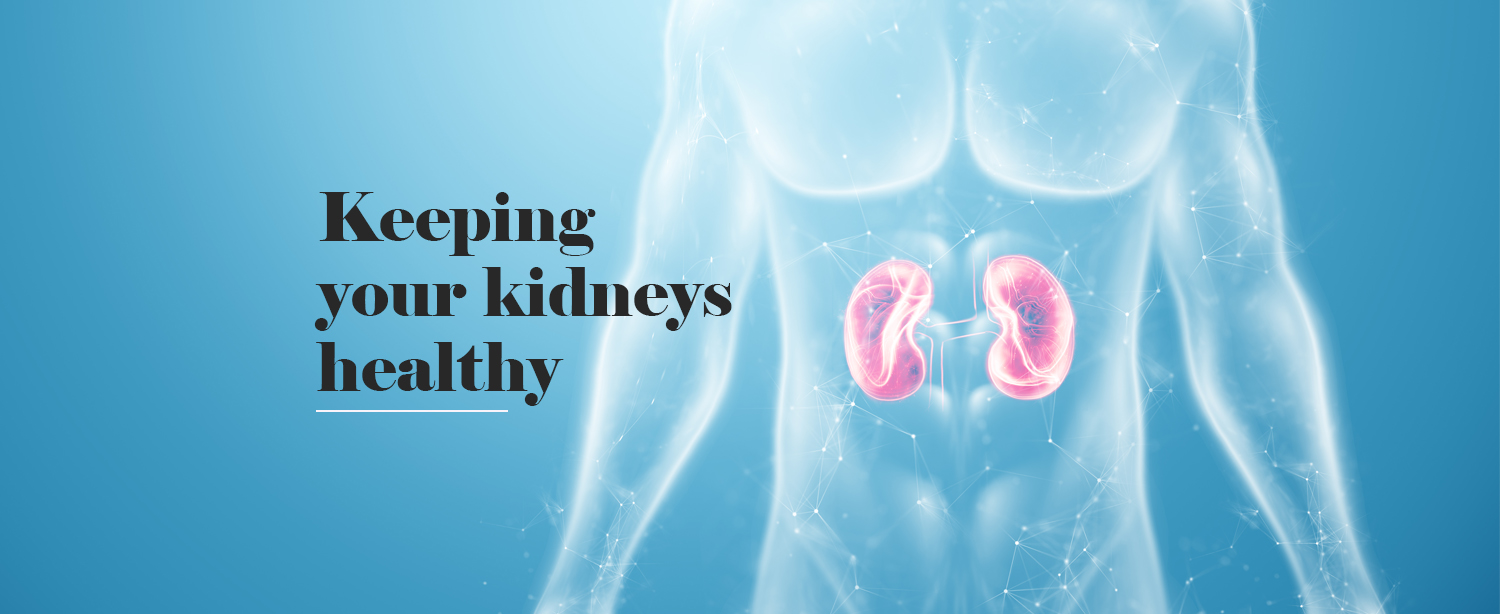Over 80 lakh Indians are suffering from chronic kidney diseases (CKD) . Are you one of them? CKD affects about one in every three persons with diabetes and one in every five adults with high blood pressure around the world. Apart from diabetes and high blood pressure, heart illness, obesity, and a family history of kidney disease are also factors that increase your risk of kidney disease.
Importance of Kidneys
The primary function of your kidneys is to eliminate waste materials and excess fluid from the body. The urine helps removes these waste materials as well as excess fluid. This process is required to maintain a steady chemical equilibrium in the body. Your kidneys perform these essential functions:
- Remove waste products from the body.
- Remove drugs from the body.
- Balance the body’s fluids.
- Release hormones that regulate blood pressure.
- Produce an active form of vitamin D.
- Control the production of red blood cells.
What is Chronic Kidney Disease?
Chronic kidney disease (CKD) is a gradual decline in kidney function over a period of months or years. There are around a million small filters called nephrons in each of your kidneys. The kidneys perform the crucial job of filtering and returning to the bloodstream about 200 quarts of fluid every 24 hours.
If your nephrons are damaged, more and more of them shut down, and cannot filter your blood effectively enough to stay healthy. Kidney failure occurs when your kidney function falls below a particular threshold. Kidney failure has a wide-ranging effect on your body and can make you very unwell. Kidney failure that goes untreated can be fatal. If your kidneys fail, your blood must be filtered multiple times a week (dialysis treatments). You might require a kidney transplant as well in some cases.
Symptoms of Kidney Disease
Each person may show different symptoms of kidney disease. You must consult your doctor for further diagnosis and testing if you notice any of the below signs:
- Fatigue.
- Itchiness all over the body.
- Blood in the urine.
- Loss of appetite.
- Nausea and vomiting.
- Puffiness around the eyes
- Muscle cramps.
Protect Your Kidneys
Kidney disease are known to occur silently and impact your quality of life. Here are a few healthy ways to reduce the risk of developing kidney disease:
- Stay active
Exercising regularly can help maintain an ideal body weight, reduce your blood pressure and the risk of kidney disease. - Eat a healthy diet
Eating a well-balanced diet can help maintain an ideal body weight, reduce your blood pressure, prevent diabetes, heart ailments and other conditions associated with kidney disease. Reduce your salt intake and avoid consumption of processed foods. - Control your blood sugar
More than half of the diabetics remain unaware of their condition. Kidney impairment affects around half of all diabetics, although it can be avoided with appropriate precautions. - Control your blood pressure
About half of the people who have high blood pressure do not know about this. This condition is known as a silent killer that can damage your kidneys. - Take appropriate fluid intake
The right level of fluid intake for any individual changes depending on many factors including exercise, climate, health conditions, pregnancy and breastfeeding. Most individuals require 8 cups, approximately 2 liters of water per day. Your fluid intake may have to be adjusted if you have kidney or heart or liver disease. - Don’t smoke
Smoking clogs the blood vessels and slows the flow of blood to the kidneys. When the kidneys receive less blood, their capacity to operate normally is harmed. In addition, smoking raises the risk of kidney cancer by around 50%. - Avoid overuse and misuse of painkillers
Common drugs such as non-steroidal anti-inflammatory (NSAIDS)/ pain-killers can harm the kidneys if taken regularly. Do not self-prescribe medications, always consult a doctor before taking a painkiller.
Treatment for Kidney disease at Kokilaben Dhirubhai Ambani Hospital
If Chronic Kidney Disease is detected early and managed appropriately, the deterioration in kidney function can be slowed or even stopped, and the risk of associated complications can be reduced. Consult our highly trained team of doctors for prompt diagnosis and treatment of kidney disease. We have one of Mumbai’s largest dialysis unit, with the latest technology, that provides compassionate care to all the patients. Our dedicated transplant ward offers the best post-transplant care and has performed over 185 life-saving kidney transplant surgeries. Please find below our website for further details:
https://www.kokilabenhospital.com/departments/clinicaldepartments/nephrology.html


